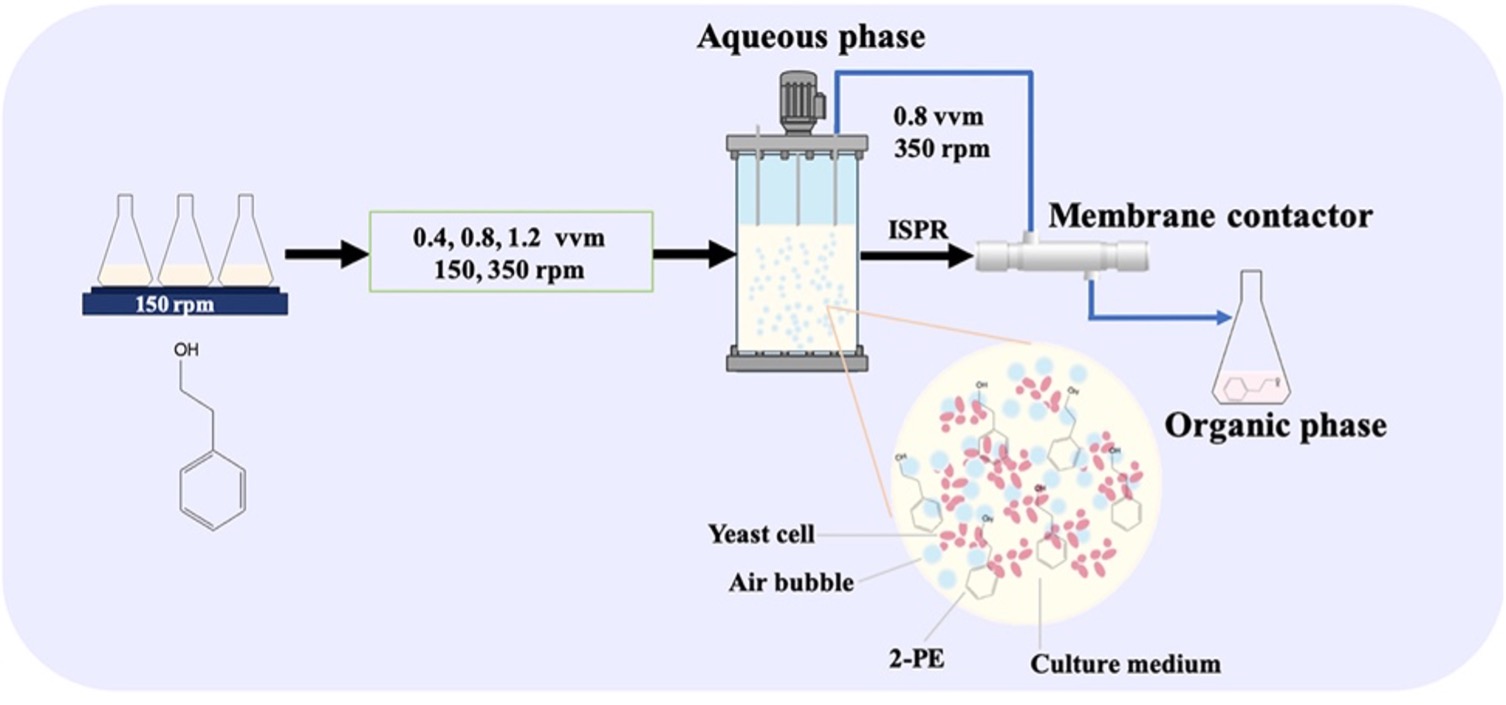 |
|
The production of 2-phenylethanol (2-PE), a high-valued aroma, has been performed naturally through the bioconversion of L-phenylalanine by the Ehrlich pathway in yeast. Nevertheless, one of the main limitations of this bioconversion is the inhibition of yeast growth by 2-PE. This work evaluated the intensification of 2-PE production in a batch culture using a conventional bioreactor coupled to an in-situ product removal (ISPR) process, by means of membrane-based solvent extraction (MBSE). The culture of the native yeast Kluyveromyces marxianus ITD0090, using a shaker flask stirred at 150 rpm, produced a maximum concentration of 2-PE of 0.7 g L-1 after 24 hours. When the yeast was cultivated in a controlled aerated-stirred bioreactor operated at 0.8 vvm and 350 rpm, the maximum production of 2-PE after 48 h reached 1.49 g L-1. Intensification of the bioprocess was achieved by coupling the controlled bioreactor with a MBSE system, which allowed the continuous recovery of the 2-PE produced, reaching a final titre of 3.02 g L-1 after 56 h.
Keywords: aroma, 2-phenylethanol, bioconversion, Kluyveromyces marxianus, ISPR.
|
|
 |

